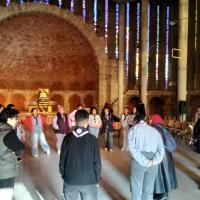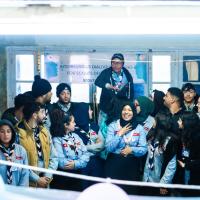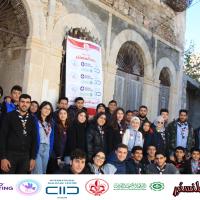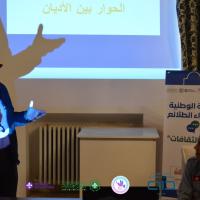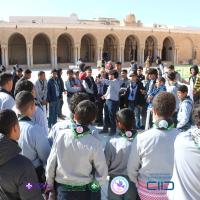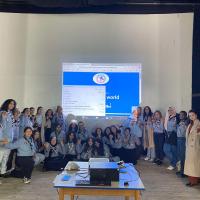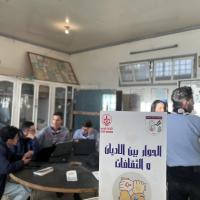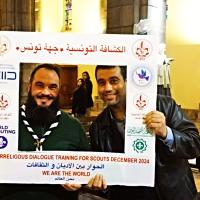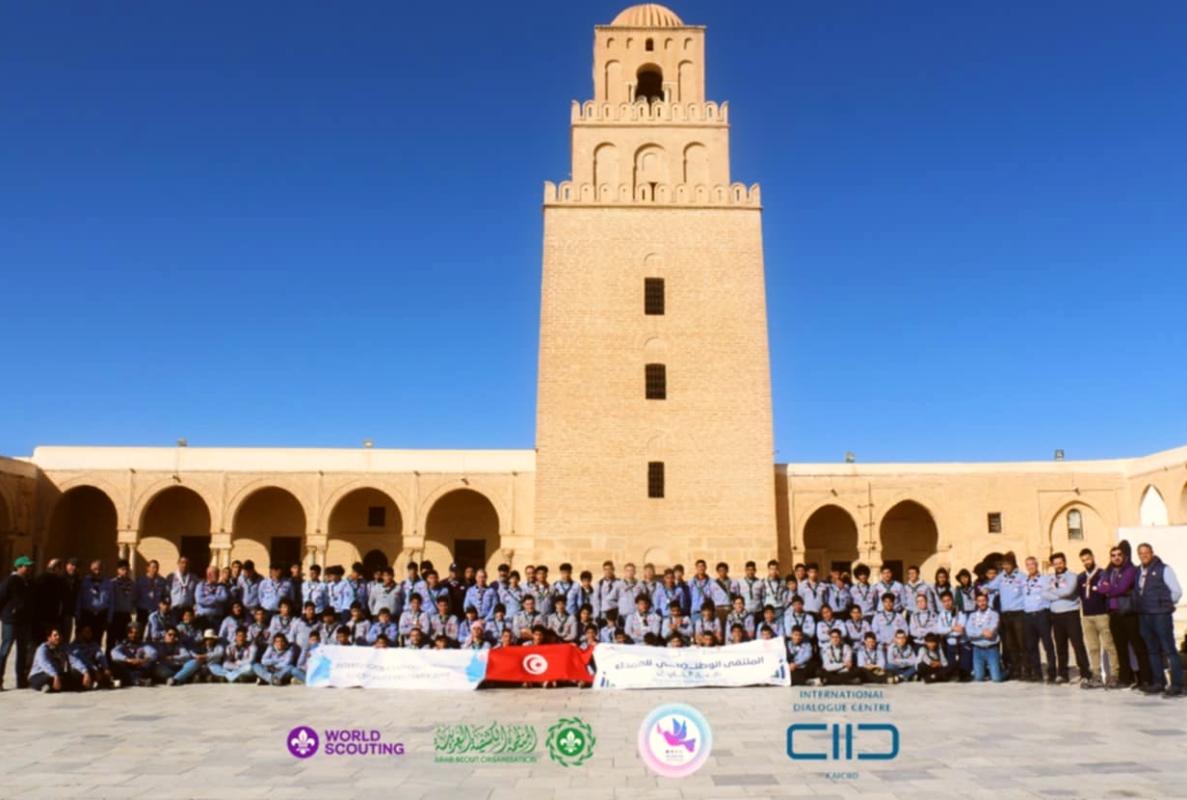
We are the world
In the last five years, Tunisia has seen a rise in sub-Saharan Christian refugees attempting to reach Europe through unconventional means, causing tension and unease among Tunisians. Additionally, the conflation of Judaism with Zionism in Tunisia may perpetuate stereotypes that could lead to violence. As Tunisia's largest youth organization, we are prepared to collaborate with young individuals to combat extremism, promote dialogue, advocate for change, and enhance community engagement.
It commenced with online training of 15 senior leaders, followed by a national training for 48 leaders from distinct regions. Then conducted online training sessions for all regions. Activities included in-person training, dialogue circles, visits, and awareness initiatives, strategically planned during school holidays, winter camps, and training sessions. Visits to religious sites in six cities executed to ensure a comprehensive exploration of their cultural and religious significance.
This project had a profound impact on both scouts and non-scouts alike, fostering a sense of unity and understanding within the community. For scouts, the initiative served as a platform for skill development, leadership growth, and the reinforcement of core scouting values. Through engaging in activities focused on conflict resolution, intercultural communication, and community service. On the other hand, non-scouts benefited from increased awareness of cultural diversity and religious tolerance, as well as opportunities to engage in meaningful dialogue about different communities.
Flexibility and Adaptability: Adjusting plans based on changing conditions is crucial for success. Clear Communication: Ensuring messaging is clear, inclusive, and respectful of diverse religious communities. Engagement with Religious Figures: Initiating interactions with religious figures before activities like visits. Empathy and Respect: Prioritizing empathy, respect, and understanding in all project interactions.
